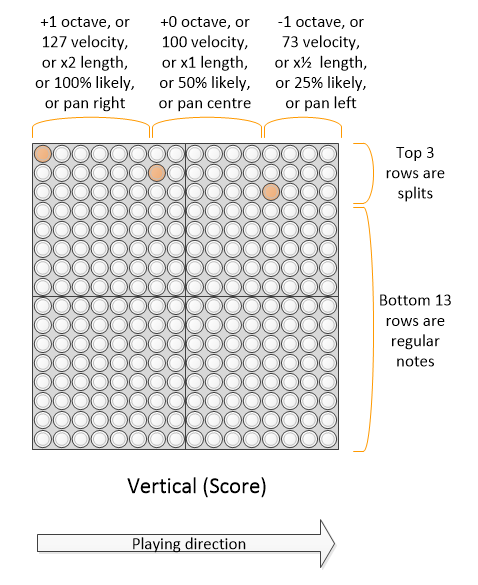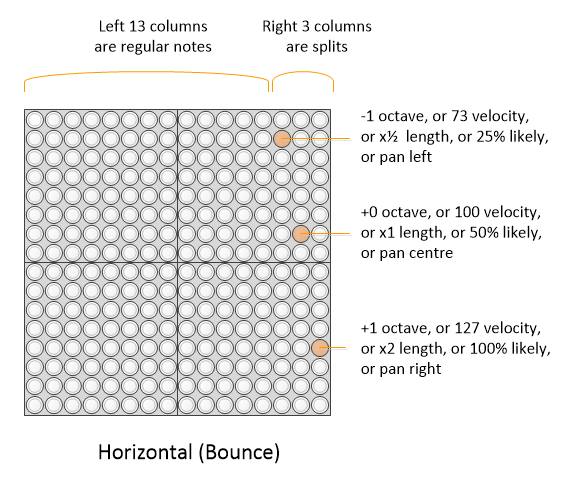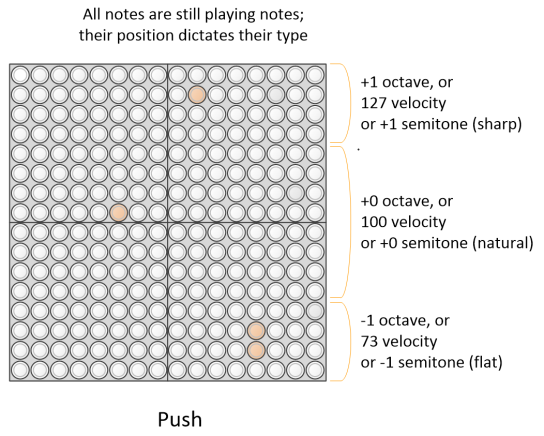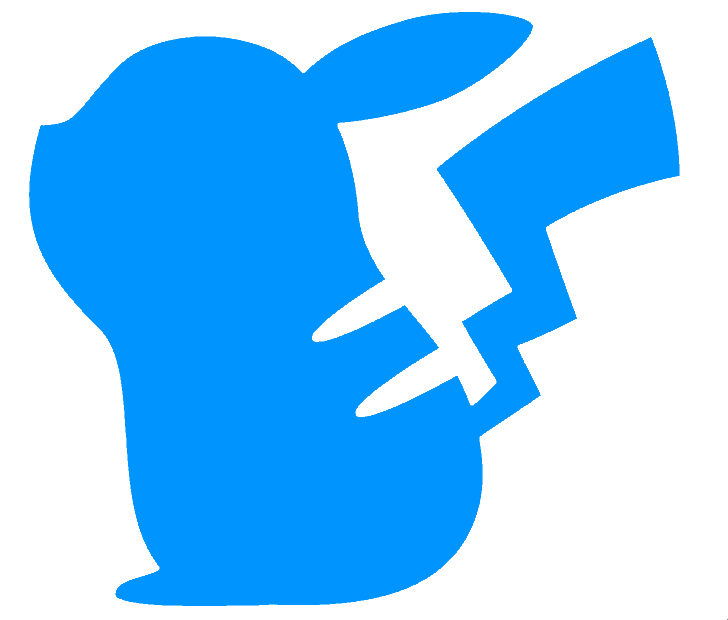Splits
This function extends all layer modes with octave, velocity, note length, pan, probabilistic, offbeat, sharp/flat, sustain and portamento splits.
It is quite frustrating that the normal TNR limits the “playable” range of one block to the range of the selected scale and the octave setting. This new feature allows the octave to be one higher, or one lower, than the selected setting dynamically.
The SWL-01 chip can actually produce a much more interesting range of notes than the TNR will allow it, in particular by allowing modification of the note velocity away from the default of 100. This new feature allows the velocity to be changed per note (from 3 options), allowing, for example, more musically dynamic drums and other effects.
This feature allows the sound length to be dynamically halved, or doubled, allowing a larger range of expression.
The probabilistic, or chance, split, provides true randomness to whether notes play.
The offbeat split allows score layers to play repeated or offbeat notes, in each column.
The sharp/flat (or accidental) split allows easy sharpening or flattening of notes
The sustain split can be used to emulate the action of the sostenuto and sustain pedals on a piano
The portamento split turns portamento on/off - although the audio of the TNR does not support portamento, this is meant to support other synths that do.
This function is a property of the layer, and is selected under the layer menu.
 |
 |
|---|
These features - only one of which can be selected at a time - act to sacrifice the top 3 pitched notes of the block, and use these to select which of the three octaves/velocities/sound lengths/probabilities are wanted. Thus the note range is “split” into normal instrument notes (bottom 13) and expression (top 3). The following table shows the behaviour of the 3 expression notes in the various splits.
| Split type | Top note | Middle note | Bottom note |
|---|---|---|---|
| Octave | +1 octave | Default octave | -1 octave |
| Velocity | 127 | 100 | 73 |
| Length | 2x default | default | 1⁄2 x default |
| Probability | 100% | 50% | 25% |
| Pan | Right | Center | Left |
| Offbeat | Double note | Onbeat single note | Offbeat single note |
| Sharp/Flat | +1 semitone | no change | -1 semitone |
| Sustain | Sostenuto on | No pedals | Sustain on |
| Portamento | On | Off | On |
For layers where pitch increases vertically - i.e. score, random, draw - the top 3 rows of the TNR adjust the split expression value. For layers where pitch increases horizontally - i.e. bounce - the rightmost 3 rows of the adjust the split expression value. In push mode, the top 1⁄4 of the screen is the “Top” expression value, the bottom 1⁄4 of the grid is the “Bottom” expression value, and the middle 1⁄2 of the grid is the Middle expression value. Currently in solo mode, the split is handled as per bounce mode, but this may change in later releases since this is a particularly inefficient use of grid real estate.
 |
 |
|---|---|
 |
Not all layer types have all split types implemented.
| Split type | Score Score256 |
Random Bounce Draw |
Push | Solo | Abacus |
|---|---|---|---|---|---|
| Octave | Y | Y | Y | Y | N |
| Velocity | Y | Y | Y | Y | N |
| Length | Y | Y | N | Y | N |
| Probability | Y | Y | N | Y | N |
| Pan | Y | Y | Y | Y | N |
| Offbeat | Y | N | N | N | N |
| Sharp/Flat | Y | Y | Y | Y | N |
| Sustain | Y | Y | Y | Y | N |
| Portamento | Y | Y | Y | Y | N |
The split modified is retained until the next split modifier, i.e. the split latches. This is easily seen in score mode, and is fun to use in bounce mode, using the bounce to vary the velocity or octave randomly.
In score mode, a split directive in the same column as a note will strictly apply (i.e. before) that note plays. This is required in order to make “chords” in score mode behave predictably. For the other layer types, this has not been enforced, and depends on the order in which the notes were originally entered.
Compatibility Issues
Loading songs/blocks saved in previous releases may confuse the split code, and unexpected results may occur.
Releases
First included in A015. Probabilistic/Chance and Pan splits in A028. Offbeat splits in A029. Sharp/Flat in A033. Sustain & Portamento in A035.

